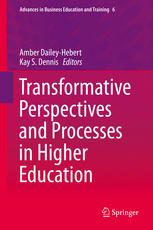

Most ebook files are in PDF format, so you can easily read them using various software such as Foxit Reader or directly on the Google Chrome browser.
Some ebook files are released by publishers in other formats such as .awz, .mobi, .epub, .fb2, etc. You may need to install specific software to read these formats on mobile/PC, such as Calibre.
Please read the tutorial at this link: https://ebookbell.com/faq
We offer FREE conversion to the popular formats you request; however, this may take some time. Therefore, right after payment, please email us, and we will try to provide the service as quickly as possible.
For some exceptional file formats or broken links (if any), please refrain from opening any disputes. Instead, email us first, and we will try to assist within a maximum of 6 hours.
EbookBell Team

5.0
88 reviewsThis book aims to provide insight into the complexities confronting higher education today and to highlight tangible opportunities that exist to address such issues. We are in a constant state of flux and higher education needs to respond in more proactive, intentional and innovative ways to remain a relevant cornerstone to society and culture. The editors begin by asking how our collective reality might change if the complexity and uncertainty surrounding us were embraced and leveraged to serve the learner and society as a whole. They invite the reader to explore collaborative approaches to individualized learning pathways, networked learning and a reimagined ecosystem of academia. The chapters are arranged to inform the reader seeking knowledge on how to 1) reshape and redefine the 21st century university, with its evolving role in these transformative times; 2) design and implement courses that address the changing needs of the university and the non-traditional student; and 3) utilize research on innovative strategies with processes that promote organizational learning. The chapters profile the fluid nature of learning as it evolves in higher education and the workplace, often with a blurred line separating the two environments. Exciting ideas related to heutagogy, problem-based learning, innovative constructivist strategies, authentic learning and self-regulated learning all converge in this volume.